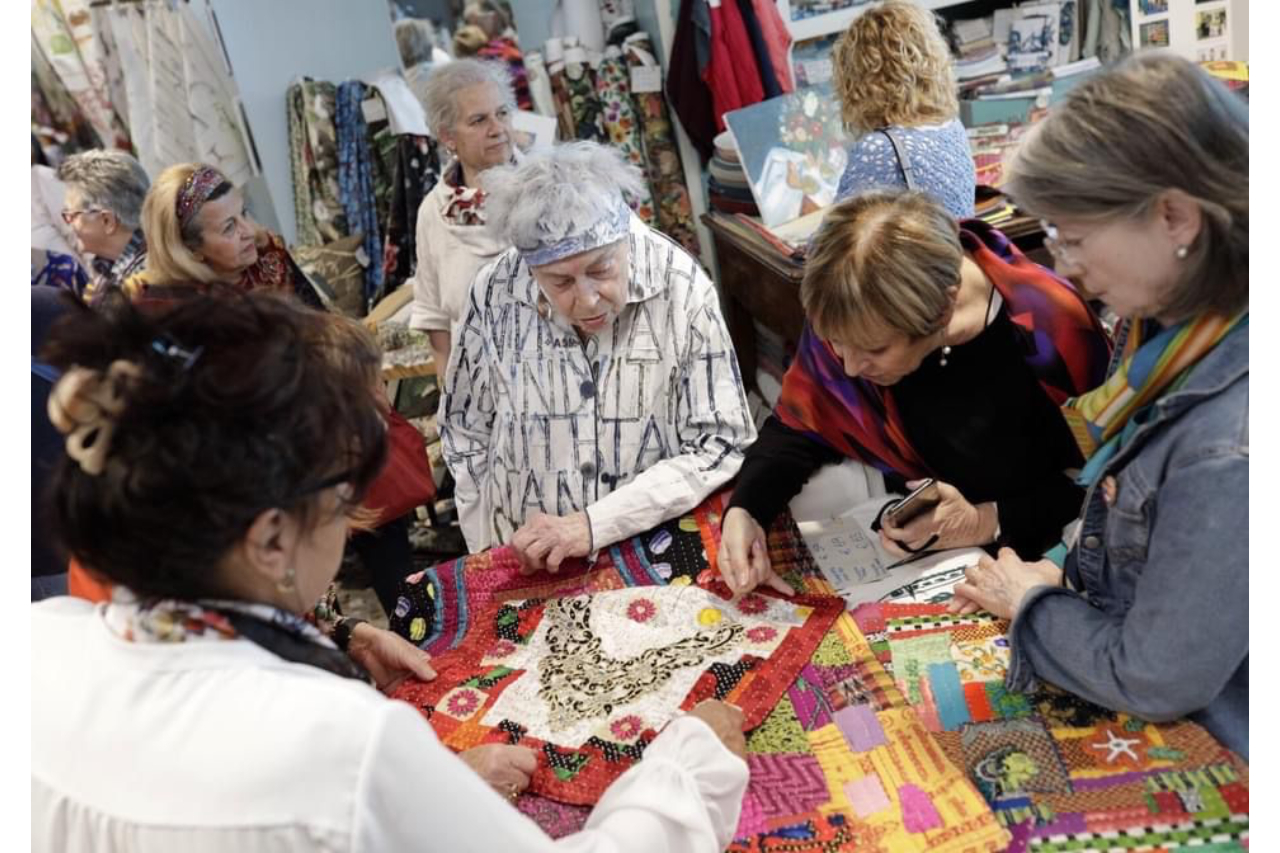
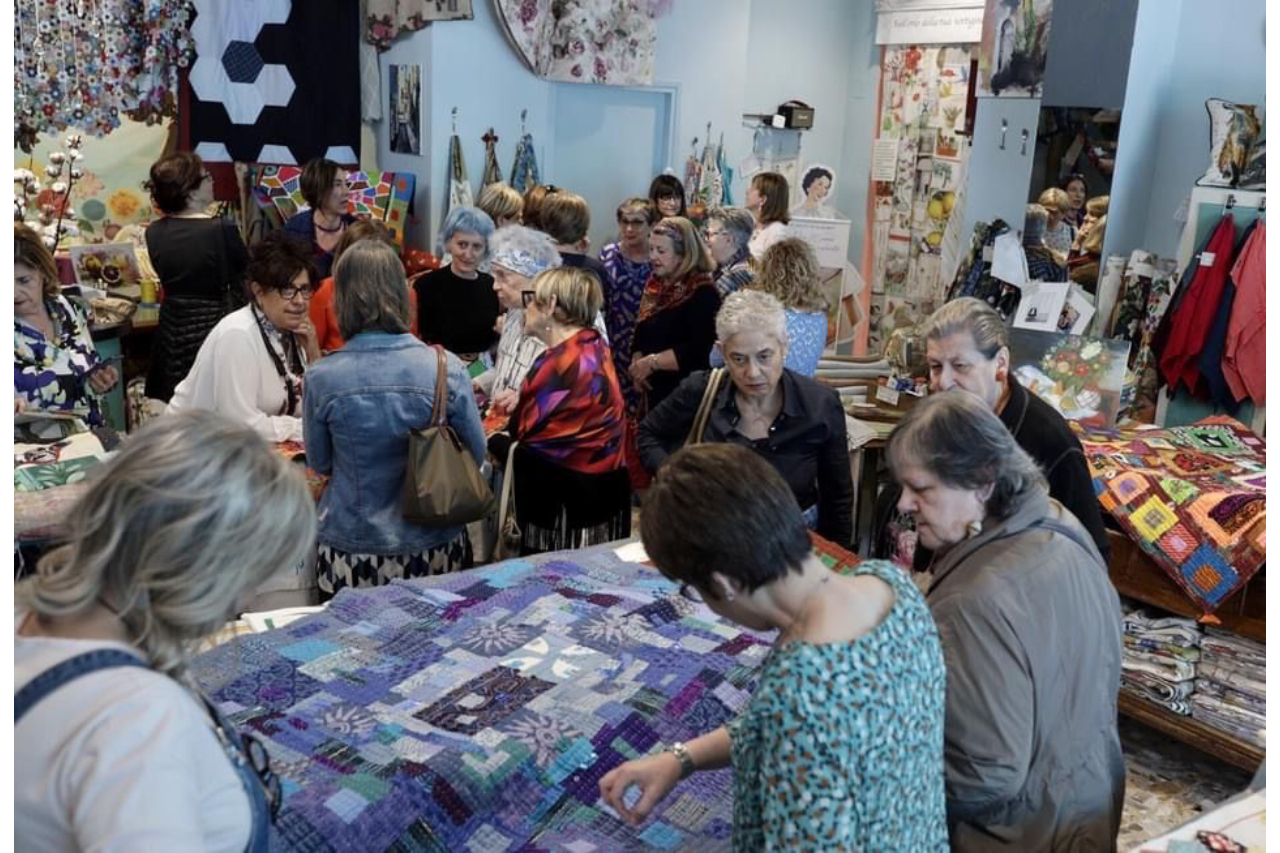
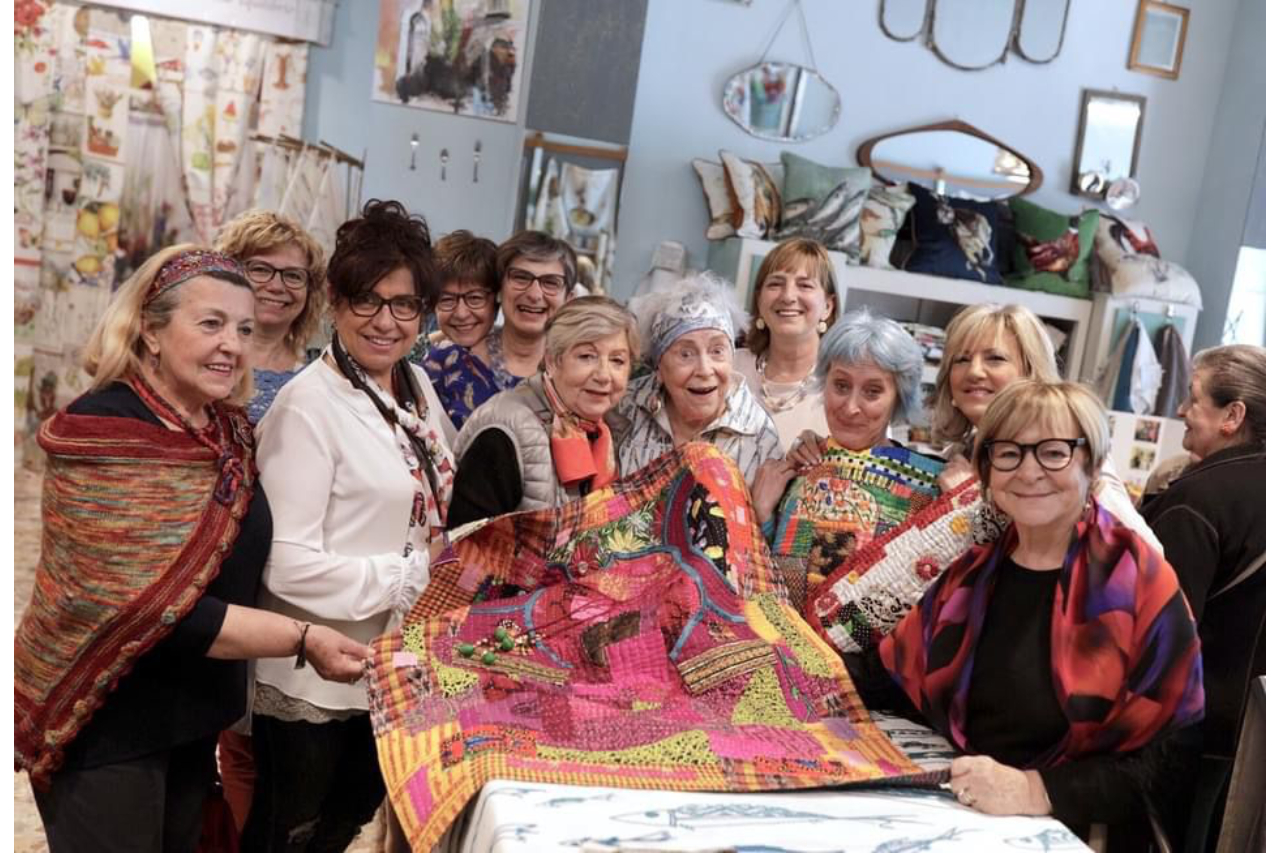
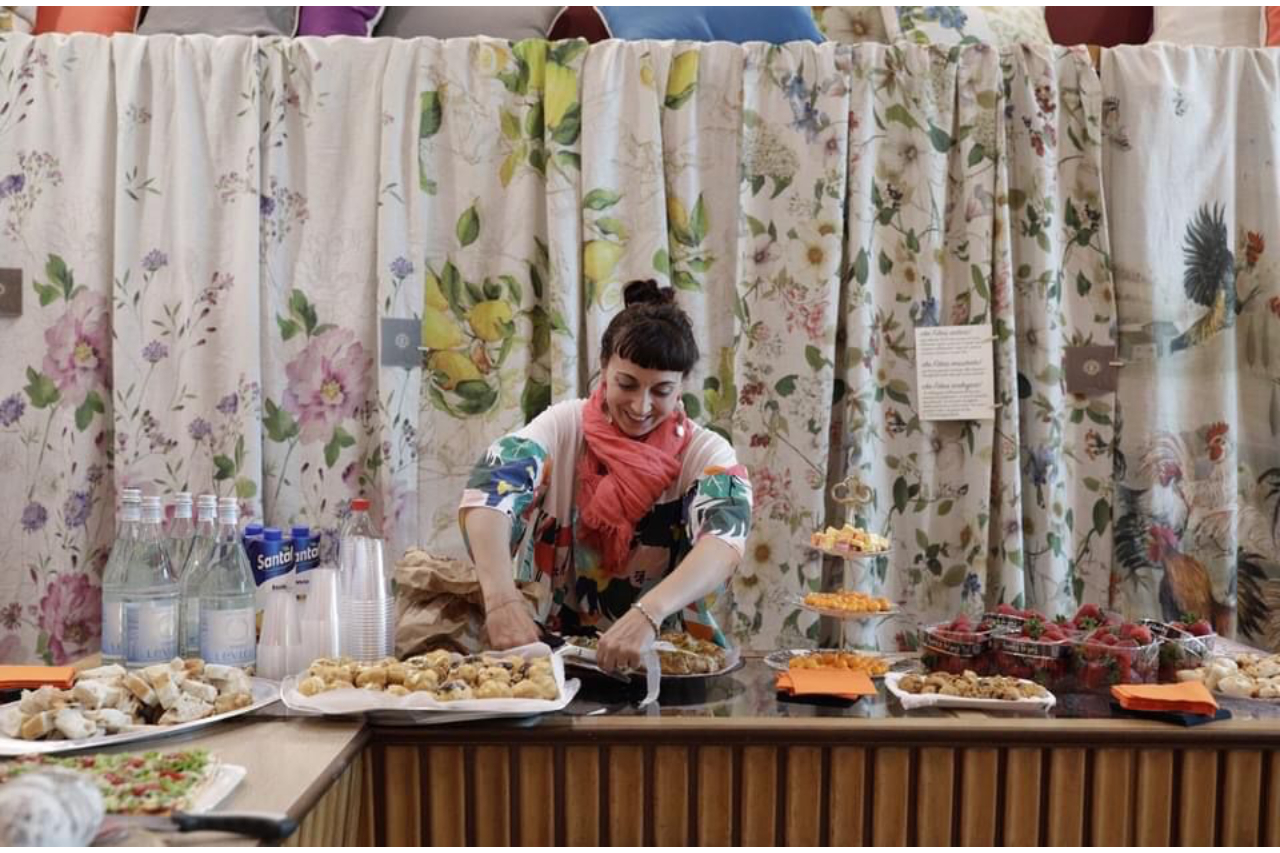
“I choose to sell only things that enhance life for people and I work with companies whose owners and philosophy I know. I like to thank customers, to have them enjoy themselves and not just buy. A shop can’t just sell any more. I’d also find it boring to just sell: you have to get to know people, establish new relationships and exchange ideas.”
Our interview with Cristina Fioraso, owner of the 120Mamelistrasse fabric shop
“I was born in a drawer.” That’s how Cristiana Fioraso, owner of 120Mamelistrasse, answers our question: “Where does your love for textiles come from?”
“My father,” she says, “was already the son of a textile merchant who travelled around the valleys of Verona with a van after the war selling door to door and at markets. Then, in 1962, my father decided to open his own little shop when he got married. Our back room was our home, so I was born with fabrics in the wardrobe instead of clothes! At the time, everything was by the metre. In 1973 he decided to open a shop on a road with heavy traffic, the state road that connects Verona to Vicenza, increasing the floor area tenfold, with a new vision, with the chance to touch the merchandise. He removed the counter, transforming the shop into a kind of self-service where they sold big brands, perhaps with a minor defect, since being on the outskirts meant they needed to optimise the takings. I went to classical high school and then continued working in the family with mum and dad. I’m the third generation.
My grandmother Elisa started it. I worked until 2016, when my father passed away and, due to various problems with the inheritance, I broke off and decided to open this shop on my own, in another location, in another part of town further west. At the beginning it was 77 square metres, on a street that always has a lot of traffic, but not in the city centre. We furnished all the rooms very sustainably, as we used all reclaimed materials. Even the chandeliers were made from used washing machine drums, thanks to my husband, who’s very good with his hands. Later, in 2018, we had the chance to buy the shop next door, doubling the floor space, and we currently have 150 square metres of mostly household linen retail. I like to buy vertically, from the manufacturer directly, and we try to promote historic Italian companies but also foreign ones, because there’s also excellence to be found in Europe.
There have been generational changes in your family. Is it happening with your daughters now?
My daughters Camilla and Anita (pictured), grew up among the cloth shelves like me. It was true for my father as well, in his case on the legendary Leoncino because his mother, my grandmother Elisa, sold door to door after the Second World War, when up in Lessinia for a spool of thread they’d still give you a kilo of butter, and when it took a year to collect the cost of a cut of Marzotto wool to make a man’s formal suit, because the customer paid in instalments, 500 lire a week. When times were tough, but people didn’t give up on quality. My father would have been 90 years old on 21 May. Verona celebrates its patron saint on 21 May. I celebrate my father, with the shop open. Tradition is a serious matter. Some things you don’t learn at any school desk; you learn them at the shop counter even while playing with scissors or a tape measure. Personally, I can say that I’ve been doing this job for 58 years, my whole life. My father’s first shop was tiny, on Via dei Sogari, and was a room in the flat. You’d open the wardrobes and, as well as your clothes, you’d find pieces of fabric, beautiful wools from Biella and silks from Como, because for my father, quality came before everything else. Well, what can you do? That was my school.
My daughter Camilla graduated with full marks in physiotherapy in November 2023 and found a job straight away. Anita finished art high school then decided to follow my path. No insistence on my part; in fact, I would have preferred her to “enjoy/work on” getting a degree first. She works hard and is very good at interior design, in the sense that she has good taste and loves beauty. I’m taking her to visit companies so she can pick up more in-depth knowledge: the sooner she learns the technical side of the trade the better. The way I see it, visiting companies helps you grow, and your customers appreciate and have a better understanding of how the product is made. With globalisation, it’s important to understand the supply chain so you know who you are leaving your money to. Personally, I choose companies whose owners and philosophy I know. I prefer people with a family tradition who are carrying it on, maybe making sacrifices in terms of profit. It’s also important to report on these visits, to engage customers so they become attached to them in turn.
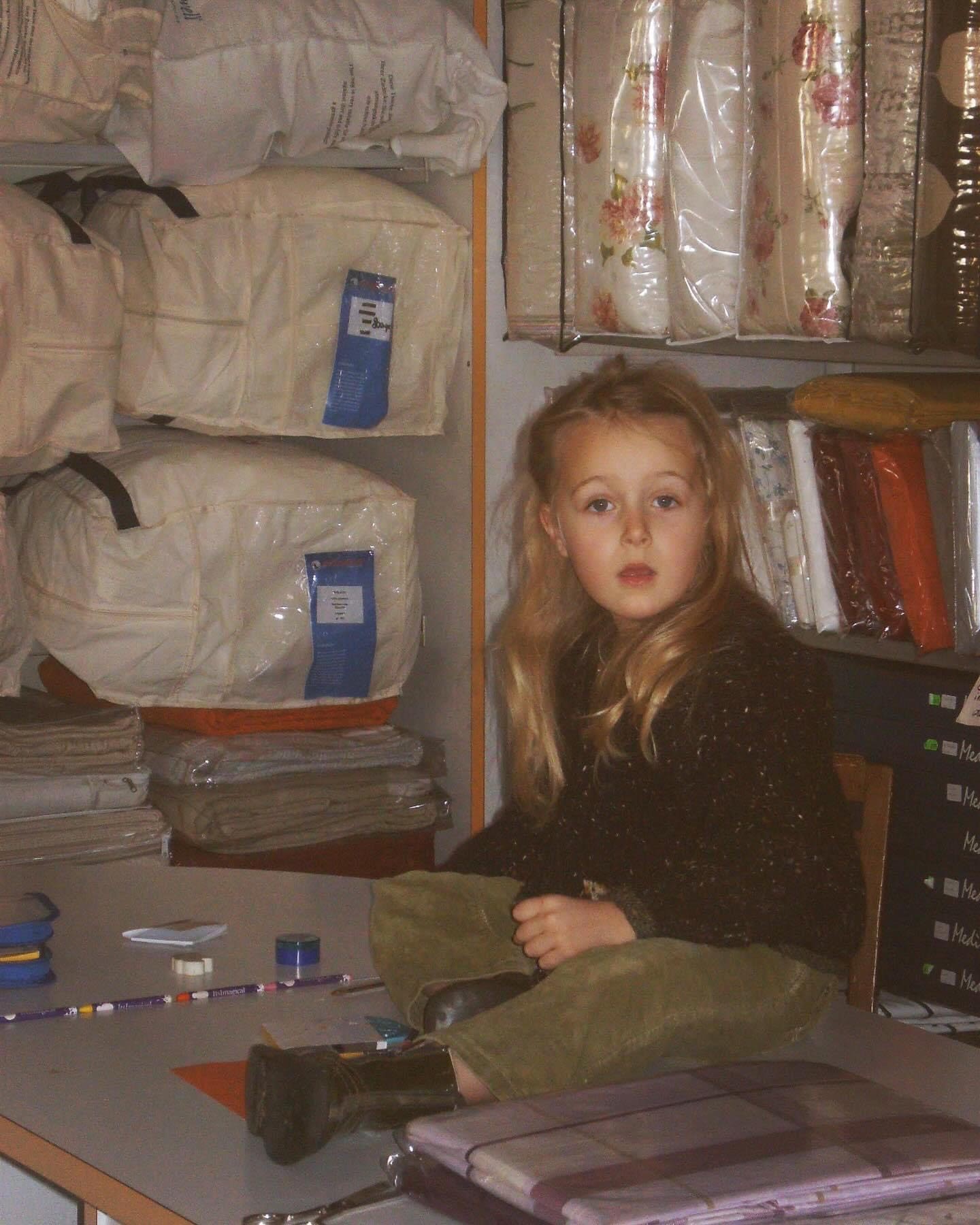
Anita, the daughter of Cristina Fioraso, from an early age surrounded by fabrics
Why do you organise events in your shop?
Because I like it and think of it as a way of thanking customers, by having them enjoy themselves and not just buy. A shop can’t just sell any more. I’d also find it boring to just sell: I’ve been doing it for too many years; it’s reductive. At events you get to know people and allow new relationships to be established and ideas to be exchanged. They’re also a more easygoing way to publicise the shop. We’ve organised them both in the shop and at home. On 2 October 2022, for the L’Anelando event we ended up in the Arena newspaper in Verona.
My house – the former villa of the Lanificio Tiberghien wool mill – was fitted with all the wool companies we deal with in the shop, each room with a different set-up. It wasn’t about sales, just a moment to enjoy being together and be amazed, open to the public. In the shop, on the other hand, we welcomed painters, writers, weavers, artisans, puppeteers… always with a big crowd. All open, free events, often with free gifts or souvenirs to take home.
Which collections represent you the most?
All collections that are created with a certain philosophy and in any case that revisit natural materials. I’m putting a lot of emphasis on wool and linen. I find them really faithful materials, that create beauty, comfort, that make people feel good, with the choice of selling things that improve people’s lives that are 100% about quality and long-lasting. Fleece, for example, will never enter my shop. We mostly sell finished products for the table, for the bedroom and for everything homeware.
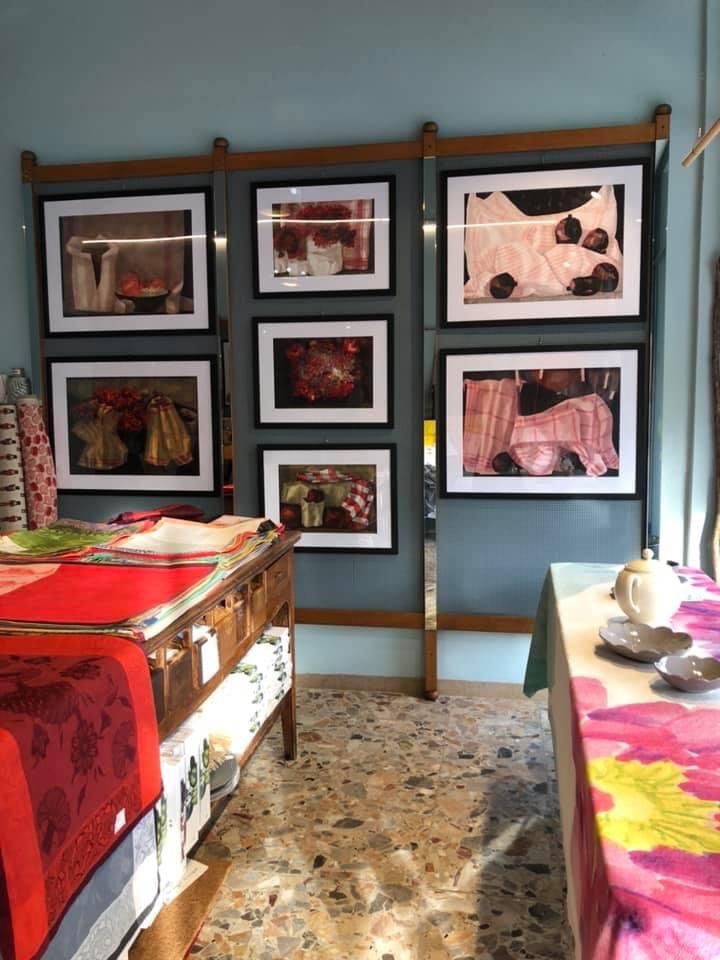
Event to showcase paintings of tea towels by the father-in-law of Elisabetta Bagaccin,
brand ambassador of Milano Home
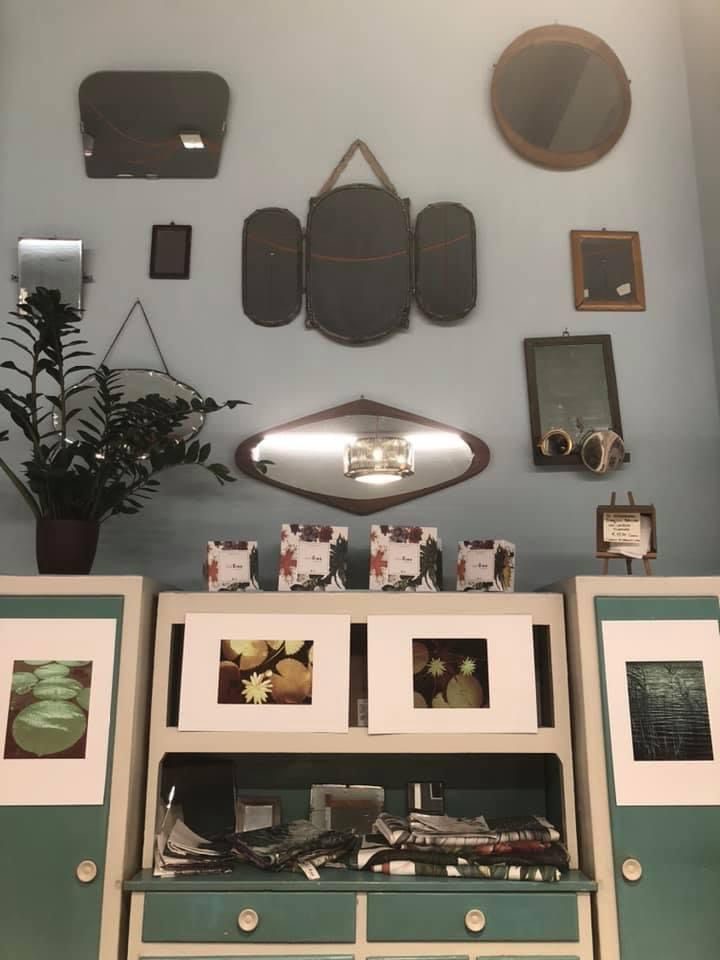
Photographs by Antonella Vecchi, also author of Il Bel Lavoro, which highlights praiseworthy local enterprises, documenting their values and synergies that create favourable working environments for the self-fulfilment of workers and the businesses themselves. 120Mamelistrasse is one of the companies presented in the book.